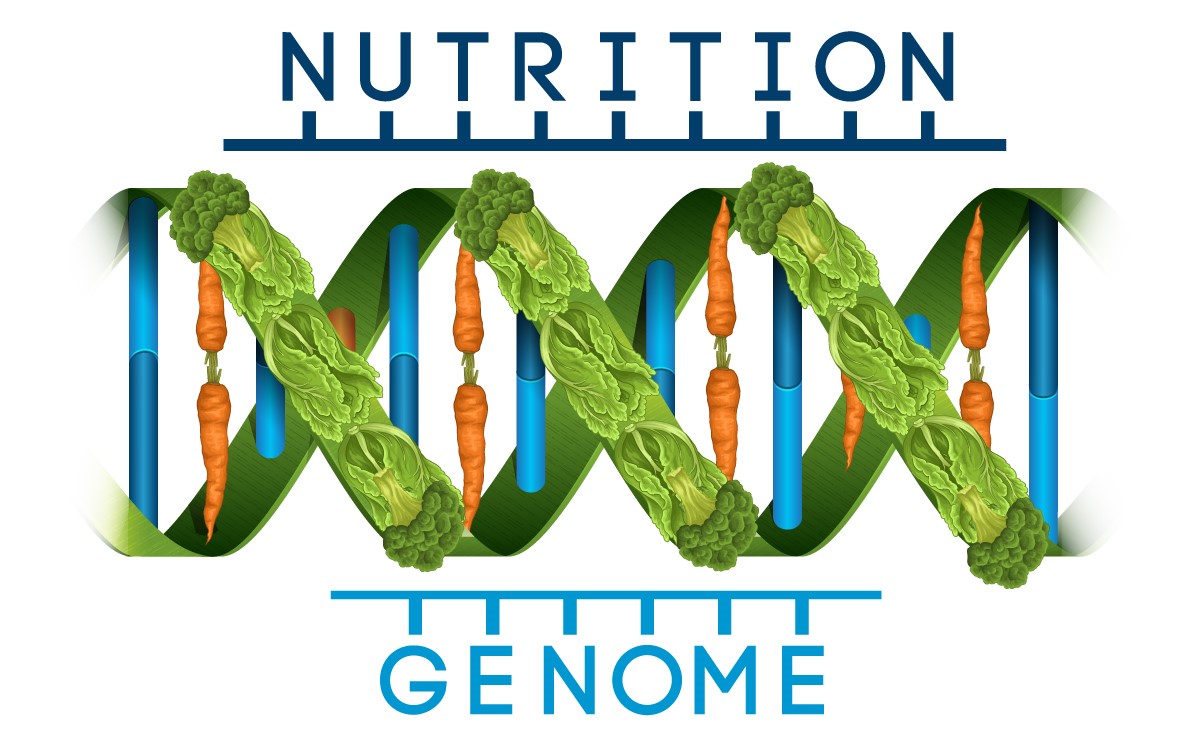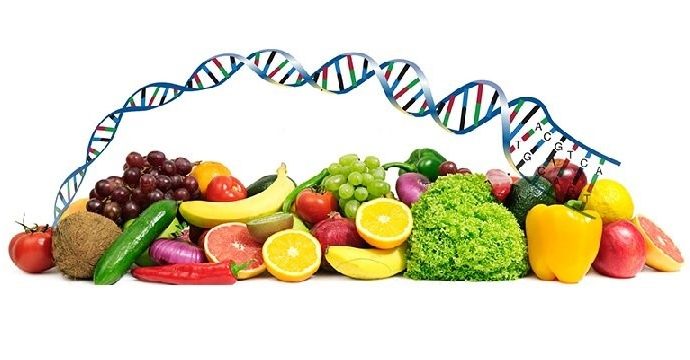In recent years, the convergence of genomics and personalized nutrition has garnered significant attention in both scientific communities and the general public. As we stand on the brink of a new era in health and wellness, the integration of genetic information into dietary recommendations promises to revolutionize how we understand and approach nutrition. This article
In recent years, the convergence of genomics and personalized nutrition has garnered significant attention in both scientific communities and the general public. As we stand on the brink of a new era in health and wellness, the integration of genetic information into dietary recommendations promises to revolutionize how we understand and approach nutrition. This article delves into the burgeoning field of personalized nutrition, exploring the role of genomics, the potential benefits, and the challenges that lie ahead.
The Concept of Personalized Nutrition
Personalized nutrition is an innovative approach that tailors dietary recommendations to an individual’s unique characteristics, including their genetic makeup, lifestyle, and health status. Unlike the traditional one-size-fits-all dietary guidelines, personalized nutrition aims to optimize health outcomes by considering the intricate interplay between diet, genes, and the environment.
The Role of Genomics in Personalized Nutrition
Genomics, the study of an organism’s complete set of DNA, including all of its genes, plays a pivotal role in personalized nutrition. By analyzing an individual’s genetic information, scientists and healthcare providers can identify genetic variations that influence nutrient metabolism, food sensitivities, and disease risk. This genetic insight enables the development of customized dietary plans that align with an individual’s unique genetic profile.
Nutrigenomics: Bridging Genes and Diet
Nutrigenomics is a subfield of genomics that focuses on the interaction between nutrients and genes. It examines how different nutrients affect gene expression and how genetic variations influence the body’s response to specific nutrients. Through nutrigenomics, researchers aim to understand how diet can be used to prevent or treat diseases by modulating gene expression.
For example, certain genetic variants are associated with lactose intolerance, a condition where individuals cannot properly digest lactose, the sugar found in milk. By identifying these variants, healthcare providers can recommend lactose-free diets to individuals with this genetic predisposition, thereby preventing discomfort and promoting better digestive health.

Picture by: Yandex.com
Genetic Variations and Nutrient Metabolism
Genetic variations, known as polymorphisms, can affect how individuals metabolize and utilize nutrients. For instance, the MTHFR gene variant can influence the metabolism of folate, a vital B-vitamin. Individuals with this variant may require higher folate intake or supplementation to meet their nutritional needs and reduce the risk of associated health issues, such as neural tube defects during pregnancy.
Another example is the APOE gene, which is linked to cholesterol metabolism. Variants of the APOE gene can affect an individual’s risk of developing cardiovascular diseases. Personalized nutrition plans can incorporate this genetic information to recommend dietary adjustments, such as reducing saturated fat intake, to mitigate the risk.
Benefits of Integrating Genomics and Personalized Nutrition
The integration of genomics into personalized nutrition offers numerous potential benefits, including:
1. Enhanced Disease Prevention and Management
By understanding an individual’s genetic predispositions, personalized nutrition can help prevent and manage chronic diseases more effectively. For example, individuals with a genetic risk for type 2 diabetes can receive tailored dietary recommendations to help regulate blood sugar levels and reduce the likelihood of disease onset.
2. Optimized Nutrient Intake
Personalized nutrition ensures that individuals receive the right nutrients in the right amounts based on their genetic makeup. This optimization can enhance overall health, improve energy levels, and support optimal bodily functions.
3. Improved Weight Management
Genetic factors play a significant role in weight regulation. By considering these factors, personalized nutrition can provide more effective weight management strategies. For example, individuals with genetic variants associated with a higher propensity for weight gain may benefit from specific dietary patterns and macronutrient distributions.
4. Enhanced Athletic Performance
Athletes can benefit from personalized nutrition by tailoring their diets to their genetic profiles. This approach can optimize nutrient intake, improve recovery times, and enhance overall performance. For instance, certain genetic variants are linked to muscle fiber composition and endurance, allowing for customized training and nutrition plans.
Challenges and Considerations
While the potential of personalized nutrition and genomics is immense, several challenges and considerations must be addressed to fully realize its benefits.
1. Ethical and Privacy Concerns
The collection and use of genetic data raise ethical and privacy concerns. It is essential to ensure that individuals’ genetic information is protected and used responsibly. Clear guidelines and regulations must be established to safeguard privacy and prevent misuse of genetic data.
2. Accessibility and Cost
Currently, genetic testing and personalized nutrition services can be expensive and may not be accessible to everyone. Efforts should be made to reduce costs and increase accessibility, ensuring that the benefits of personalized nutrition are available to a broader population.
3. Scientific Validation
While the field of nutrigenomics is rapidly advancing, more research is needed to validate the effectiveness of personalized nutrition interventions. Large-scale studies and clinical trials are essential to establish evidence-based guidelines and recommendations.
4. Integration into Healthcare
For personalized nutrition to become a standard practice, it must be seamlessly integrated into the healthcare system. This integration requires collaboration between geneticists, nutritionists, healthcare providers, and policymakers to develop comprehensive and cohesive strategies.
The Future of Personalized Nutrition
The future of personalized nutrition lies in the continued advancement of genomic technologies and our understanding of the complex interactions between genes and diet. As research progresses, we can expect to see more precise and effective dietary recommendations that cater to individual needs.
Technological Innovations
Advancements in genomic sequencing technologies, such as next-generation sequencing, are making genetic testing more affordable and accessible. Additionally, the development of artificial intelligence and machine learning algorithms can enhance the analysis of genetic data, providing more accurate and personalized dietary recommendations.
Holistic Approaches
The future of personalized nutrition will likely involve a holistic approach that considers not only genetic information but also other factors such as microbiome composition, epigenetics, and lifestyle. By integrating these diverse elements, personalized nutrition can offer comprehensive and tailored health solutions.
Education and Awareness
Increasing public awareness and education about the benefits and potential of personalized nutrition is crucial. As individuals become more informed, they can make better decisions about their health and nutrition, leading to improved health outcomes.
Conclusion
The integration of genomics into personalized nutrition represents a paradigm shift in how we approach diet and health. By leveraging genetic information, personalized nutrition can provide tailored dietary recommendations that optimize health, prevent diseases, and enhance overall well-being. While challenges remain, the future of personalized nutrition is promising, with the potential to transform the way we understand and practice nutrition. As research and technology continue to advance, personalized nutrition will undoubtedly play a pivotal role in the future of healthcare and wellness.
















